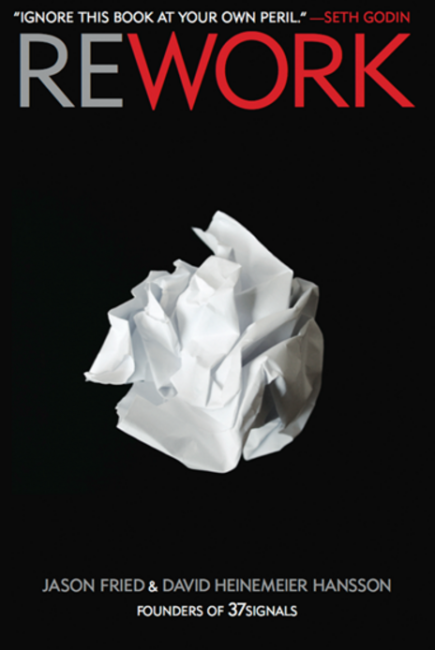
Like many freelance writers, I sort of stumbled onto this career path. I’d be lying like a madman if I said there weren’t some bumps in the road before I finally figured out how to make it work.
Literally.
While there were certainly some good resources for freelance writers out there when I was just starting out, it was a far cry from what’s available at your fingertips today.
Flashback to 2011. Communities such as Facebook, YouTube and Reddit were somewhat in their infant stages for professionals. The writing community at large was dominated by content mills and bidding sites paying a pittance for articles. Competition was fierce and freelance writing resources specifically tailored for newbies were often scarce and vague.
Fast forward to present day, where it’s perhaps the best time to be a freelance writer.
Honestly, the amount of information out there for newbie freelancers is rather overwhelming.
That’s why I made this list.
I Screwed Up So You Don’t Have To
But first, some food for thought.
The first time I attempted freelance writing full-time in 2011, I failed miserably.
Like, I really screwed up and almost went broke.
Thing is, I knew that I was a great writer. Unfortunately, being a great writer wasn’t enough.
I didn’t have the work ethic.
I didn’t fully understand marketing.
I didn’t really know what I was doing.
Every now and then I think about what went wrong back then and what I wish I would have known.
Why I Picked These Resources for Freelance Writers Specifically
These resources will help you avoid the common traps and pitfalls that plague first-time freelancers and newbies lookin who have no idea what they’re doing in regard to starting a writing business.
Please note that these aren’t all about writing, either. Sure, some of these resources will help you become a better writer; however, they’ll also help you with the following aspects of freelancing such as:
- How to effectively approach writing as a business versus a tedious bidding war
- How to run your business swiftly, without procrastinating or focusing on fluff that ultimately wastes your time
- How to deal with feeling deflated and demotivated when you’re just starting out as a writer
- The small tweaks to make your content and copy infinitely more compelling
- Demystifying the needlessly complicated worlds of Internet marketing and SEO

As a quick aside, nobody asked me to make this list.
No affiliate links, no bullshit.
This is the sort of list of resources for freelance writers that I would have wanted years ago when I was sitting with next to nothing in my bank account.
By the Way: Don’t Mistake Education for Procrastination
Before I get into the nitty gritty, remember that no resource, free or paid, can replace action.
Listen: I love reading. I majored in Literature (with a capital “L,” mind you) and poured my heart and soul into teaching it for three years to high school students (many of whom couldn’t stand it, or me for that matter).
I firmly believe that everyone should regularly read, fiction or otherwise, as means of personal and professional growth.
That being said, don’t use reading as an excuse to procrastinate.

These particular books and blogs not only offer actionable advice but also deliver the information in a tone that’s incredibly accessible if you’re a beginner.
However, the responsibility to take action and put that advice into motion falls on your shoulders.
Now, let’s get started.
From the Bookshelf…
1. Rework – The business book for people who can’t stand business books.
This was the first book on business and marketing that didn’t make me want to vomit.
While this book falls into the realm of “love it or hate it” for many readers, I really can’t recommend it enough to those who consider themselves cynical toward the traditional corporate world (as many writers are).

Written by the founders of Basecamp (formerly 37signals), the thesis of Rework is straightforward. Ditch the “workaholic” mindset and don’t sacrifice productivity for the sake of “planning.” Rather than spending hours speculating and testing, it’d be much more prudent to take action now and make necessary tweaks later.
For freelance writers, this means building your portfolio, pitching clients and putting yourself out there as soon as you possibly can. Getting caught up in the “what-if’s” will get you nowhere.
Although this book contains very little about writing specifically, co-author Jason Fried briefly discusses the importance of start-ups hiring skilled writers. Fried states that good writing is paramount for modern businesses, noting that writing represents “today’s currency for good ideas.”
Short, sweet and conversational in tone, you can get a sense for Rework at Basecamp’s Signal vs. Noise blog..
2. On Writing – Stephen King’s memoir outlines the importance of a writer’s work ethic.
Comparing writing fiction to writing for businesses or marketing purposes is apples and oranges. It always irks me a bit when I see people equate writing SEO articles about toothbrushes to Hemingway, but I digress.
That being said, there is a creative element to any sort of writing you wind up doing. Likewise, work ethic and consistency are cornerstones of any successful writer.
Whether you love or hate Stephen King, it’s difficult to deny that someone whose books have sold more than 350 million copies probably knows what he’s doing in regard to the craft.

My girlfriend gave me a copy of King’s On Writing when I was in college. Admittedly, I was somewhat cynical toward the gift considering that I was knee deep in obscure British poetry at the time, skeptical of what I could learn from the author of mass market paperbacks.
A lot, actually.
On Writing details King’s humble beginnings prior to becoming a household name. While the struggles of poverty and alcoholism may seem foreign to the world of freelancing, King demystifies the often-romantic writer’s life and provides newbies with a rather serious reality check.
Writing can be a lonely road.
You will face rejection.
You must develop a thick skin soon rather than later.
King’s focus on the importance of consistency and work ethic are perhaps the most important bits for freelancers. Stating that writers should make an effort to consistently read or write for at least four hours per day, you can’t hope to make a full-time income if you can’t buckle down and work.
Freelancers can also learn a thing or two from King stylistically. Although King himself admits that he’s not the best writer in the world, much of his success can be attributed to his straightforward style and storytelling. Similarly, you don’t have be the “best” writer on paper to make it as a freelancer.
3. The Cornerstones of Copywriting (Pick one!)
If you don’t learn the principles of copywriting and advertising, you’re doing yourself a disservice.
Persuasion. Reciprocity. Urgency.
The list goes on.
Not only can such principles help you grow your business from an advertising perspective, but also make your writing much more attractive to clients and readers alike.
Unfortunately, many copywriters adopt this sort of abrasive, Wolf of Wall Street attitude that can be incredibly off-putting for newbies.
Note: If you’re a normal, well-adjusted copywriter that isn’t obsessed with money and marketing buzzwords, I apologize.
Because of this, I recommend books as essential resources for freelance writers:

If you’ve never written copy before, fear not: copywriting isn’t rocket science. For the sake of flexibility, I would recommend any combination of the three books as solid introductions to the subject.
The Adweek Copywriting Handbook – Geared toward beginners, this is a comprehensive overview of how to effectively write copy and tap into the many psychological triggers that make your readers tick.
Hey, Whipple, Squeeze This: The Classic Guide to Creating Great Ads – Focusing more on advertising versus writing specifically, this is a down-to-earth and entertaining take on what ultimately drives readers to take action.
The Boron Letters – Presented as a series of letters from the late Gary Halbert, this seemingly unconventional take on how to write ads is considered a staple of modern copywriters (note: it’s also available for free on Halbert’s website).
It’s natural for some writers to get caught up in the creative process. The aforementioned resources for freelance writers can help shift your mindset toward selling your words instead.
From the Blogosphere…
Whether you’re resistant to splashing cash or simply want a crash course in the world of freelance writing, the following three blogs represent resources that I visit time and time again. After all, some of the best resources for freelance writers are absolutely free.
4. Rand Fishkin / Moz – An accessible introduction to the weird world of SEO.
“Wait a minute, I thought this was resources for freelance writers? What’s up with this SEO crap?”
Hold on there.
If you want to realistically survive as a freelance writer, you need to learn the ropes of Internet marketing and SEO.
When I worked as an intern for an Internet marketing company during my college days, Rand Fishkin and the good folks at Moz always offered solid advice that kept me from going insane.
Thankfully, they still do.

In a marketing world brimming with fluff, I always recommend Moz’s Beginners Guide to SEO as a must-read for anyone starting a business. After all, a pie-in-the-sky approach to marketing and SEO will get you absolutely nowhere: Moz offers actionable advice regardless of your niche or industry.
Beyond their guide for beginners, I also recommend you follow Moz’s Whiteboard Friday video series which provides insight on crafting content for search engines and readers alike.
The ability to create compelling content with organic search in mind will not only make you more attractive to potential clients, but also allow yourself to turn your freelance writing site into a lead-generating machine.
5. Carol Tice / Make A Living Writing – Every nook and cranny of freelance writing covered in great detail.
Carol has been an authority in the writing space for as long as I can remember. In fact, the’s one of the first resources for freelance writers I stumbled upon in 2011.

The Making a Living Writing blog is a treasure trove of information for those looking to make money blogging. Additionally, Carol’s emphasis on empowering writers and the freelance community is incredibly important for a career field that often attracts loners. Encouraging writers to charge a living wage and escape the trap of low pay, I recommend her blog as one-stop shop for new freelancers.
6. Jorden Roper / Writing Revolt – Bullshit-free insight on running a freelance writing business.
During the summer of 2016, I had to make one of the toughest decisions of my life.
A) Leave the field of education, where I had spent the past three years and had financial security…
or
B) Take the plunge and become a freelance writer full-time for the sake of my sanity…
Jorden’s blog was instrumental in my decision to take the plunge.
If you know that you have the tools to be a great writer but aren’t 100% on whether or not you’re ready to take the plunge from a business perspective, I can’t recommend Writing Revolt enough. Additionally, Jorden’s advice is both actionable and empowering for those looking to escape the content mills and actually start a business.

Also, Jorden is a testament to the fact that authenticity is one of the best marketing tools in your arsenal.
Let’s be honest: a lot of resources for freelancers writers can be a bit stuffy.
As someone who’s a punk rocker at heart with an affinity for counterculture, it was rather refreshing to see a fellow writer that wasn’t wearing a suit-and-tie.
Drop some f-bombs.
Don’t be a robot.
In a sea of faceless freelancers, do what you need to do to stand out from the crowd.
Be yourself.
Honestly, what do you have to lose?
Final Thoughts
Sure, there are dozens of other “honorable mention” resources for freelance writers I could recommend to beginners.
However, it’s much more important for new freelance writers to take action and start putting their ideas into motion.
So start here and start now.
(That being said, are there are any other resources for freelance writers I missed or you would personally recommend? Feel free to let me know in the comments below!)
Great list Brent! I was gifted a Barnes and Noble gift card recently. Looks like it’ll be put to good use. Before reading this I had only heard of On Writing as a staple and Rework was recommended on one of my favorite podcasts.
I will say the book that made me most confident I could do this long term was The Well Fed Writer by Peter Bowerman. Still seems to be a crowd fav.
I also enjoy Jorden Ropers’ brand identity. Found her through Pinterest and she’s a gem. Very informative for a newbie like myself.